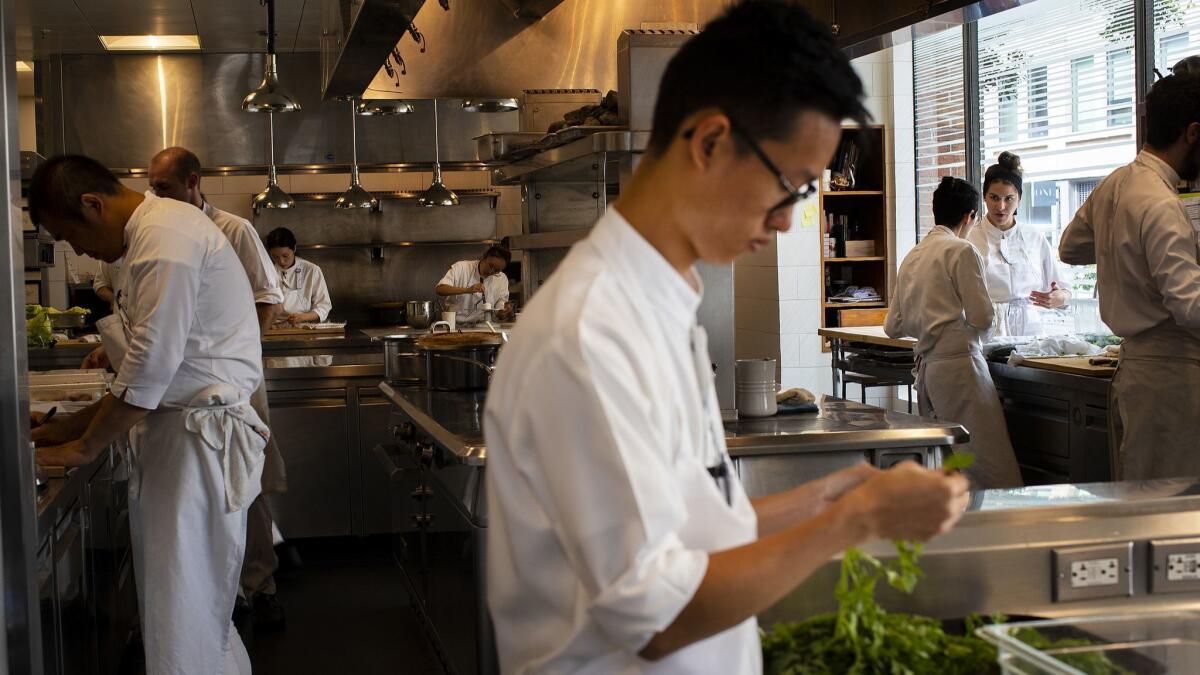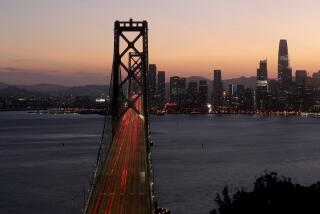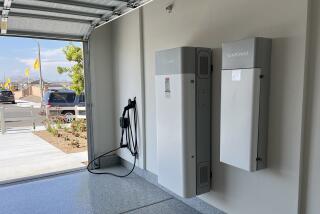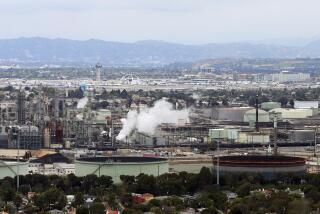Coming soon to California restaurants: Carbon neutral meals, verified by regulators

Diners may soon have the chance to nibble away some of their climate guilt by patronizing California restaurants that have pledged to slash their carbon footprints to zero.
Under a new program announced by state officials Wednesday, consumers will be able to choose from a list of zero-carbon eateries that offset emissions associated with their meals by funding greenhouse gas-reduction projects on California farms.
Participating restaurants will either go through a verification process to be declared carbon neutral or add a 1% charge to customers’ checks that will pay farmers and ranchers to transition to climate-friendly practices. The funds will support gentler tilling methods, cover cropping, composting and other measures that pull carbon dioxide from their air, prevent its release from the soil or store it in the ground. Farmers will be paid $10 per ton of carbon removed from the atmosphere.
“Many farmers want to switch and do this kind of work, to make their crops better, to make their fields more resilient and their soil healthier, but it represents a lot of capital upfront that nobody has,” said San Francisco chef Anthony Myint, co-founder of Perennial Farming Initiative, the San Francisco nonprofit that is launching the effort in collaboration with the state Air Resources Board and the state Department of Food and Agriculture.
So far, the Restore California initiative has received pledges of participation from about two dozen restaurants, including Border Grill, Café Gratitude and Spago in the Los Angeles area, and Benu in San Francisco.
The program has the imprimatur of California’s chief climate regulator, who will develop metrics to track the amount of carbon saved and determine how much farmers should be paid by diners for adjusting their practices.
“People will know that their money is actually being used to reduce a very specific amount,” said state Air Resources Board Chairwoman Mary Nichols.
Nichols and nonprofit organizers acknowledged that the zero-carbon restaurant program remains a work in progress. Funding, administration, implementation timelines and other key details are still being worked out.
“It’s the beginning of the process more than it is a fully cooked project,” Nichols said. However, she said, it’s an important step in establishing new mechanisms to squeeze carbon reductions from the food system — a major source of planet-warming emissions.
Changing agricultural practices to reduce and store greenhouse gases, known as carbon farming, holds some of the greatest promise for pulling carbon dioxide from the air, Nichols said. It’s also the kind of transformation that must involve all aspects of California’s economy if the state is to meet its goal of achieving carbon neutrality by 2045.
“We are going to have to find ways to store more carbon in plants and in the earth,” Nichols said. “This turns out to be one of the single most effective ways.”
The developing program is an expansion of efforts by Perennial Farming Initiative, the culinary nonprofit run by Myint and his wife, Karen Leibowitz. As part of its work to fight climate change, the organization measures a restaurant’s carbon footprint through a top-to-bottom assessment of its ingredients and energy use and other operations. It then identifies ways to reduce emissions, such as switching to renewable electricity or sustainably raised beef. The restaurant pays for greenhouse gas-cutting projects to offset their remaining emissions until they are declared “Zero Foodprint.”
Those assessments, Myint said, show that about two-thirds of a restaurant’s life-cycle emissions come from meal ingredients themselves.
Though many restaurants already offer a wide spectrum of sustainable and locally grown cuisine, Myint said, it may be tougher to sell customers on paying a premium for food that is climate-friendly too. In his own restaurants, Myint said, he has struggled to make carbon-neutral cuisine as desirable as say, Kobe beef or a luxury electric car.
“People will pay $80,000 for a Tesla but they won’t necessarily pay a dollar extra for the carbon-ranched burger,” Myint said.
Myint is hopeful that the blessing of state agencies will persuade more restaurants to go carbon-free or offer customers the option to offset their meals. Organizers are hoping to grow the list of participating restaurants to 100 by next year.
In one encouraging sign, Myint said he’s received no pushback from customers since deciding to add a 3% carbon offset charge at his restaurant Mission Chinese Food last year. “Literally zero people have opted out.”
More to Read
Start your day right
Sign up for Essential California for news, features and recommendations from the L.A. Times and beyond in your inbox six days a week.
You may occasionally receive promotional content from the Los Angeles Times.






